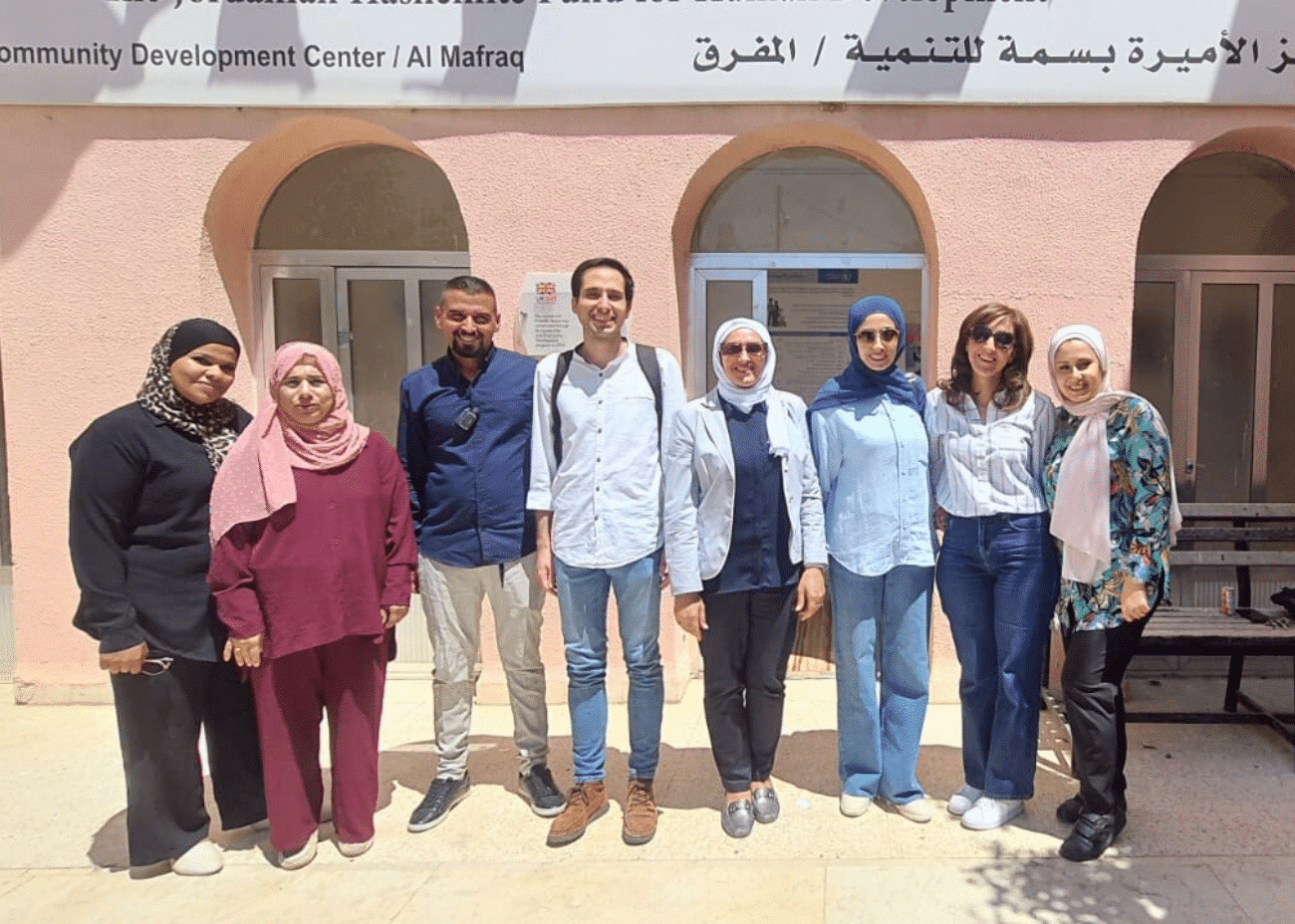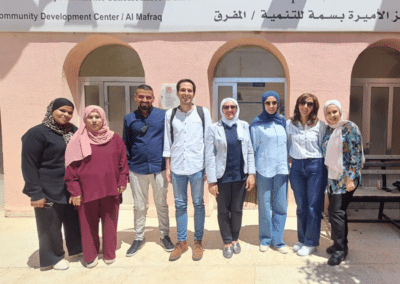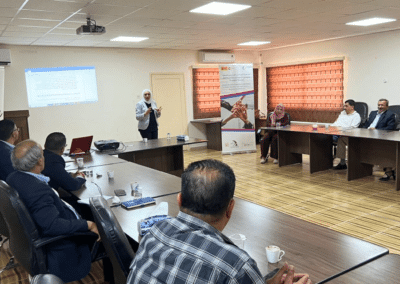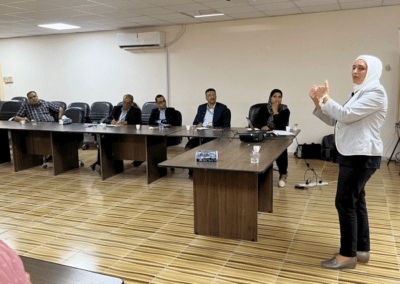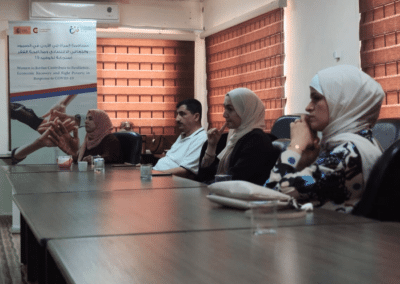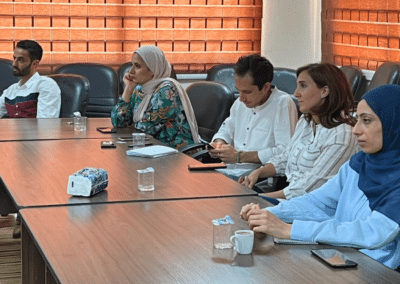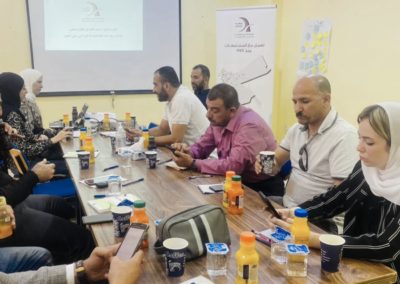During the month of July, two trascendental events have been held in Jordan in the Mafraq and Irbid Governorates, within the framework of our project “Women in Jordan contribute to resilience, economic recovery and poverty alleviation in response to COVID -19″, which is developed in partnership with the Jordan Hashemite Fund for Human Development (JOHUD) and has funding from the Spanish Agency for International Development Cooperation (AECID).
One of the outcomes pursued by the project is the creation of a supportive and violence-free work environment for women in the Jordanian private sector.
In this sense, a particularly relevant activity has been carried out to develop a guideline for this purpose. Thus, two discussion and debate groups have been formed, creating a space for fruitful and constructive dialogue, where each participant has had the opportunity to express themselves freely, providing enriching perspectives.
The first of them took place on July 16, in Mafraq. A total of 17 key actors met to exhaustively review a guide prepared by the JOHUD team, in order to improve it and thus strengthen the role of women in the workplace:
- Six members of JOHUD’s multidisciplinary team, experts in social protection, gender and community development, among other areas.
- Eight employers, equally distributed between genders, who demonstrated an active commitment to equal employment opportunities. Among them, one had previously participated in a JOB ON TRAINING activity with two right holders, serving as an exceptional example of inclusion.
- A representative of the International Labor Organization (ILO), who joined the effort to guarantee respect and implementation of labor rights.
- A representative of the Ministry of Planning and International Cooperation (MOVIC, Ministry of Planning & International Cooperation).
- A representative of the Jordan River Foundation (JRF).
- A representative of the Ministry of Planning and International Cooperation (MOVIC, Ministry of Planning & International Cooperation).
The discussions held during the day have yielded revealing results.
The need to establish a specific section for people with disabilities was highlighted, demanding a regulatory change that ensures the effective protection of their rights and rejects practices that go against them.
Likewise, the persistence of cultural and traditional limitations that continue to restrict employment opportunities for women was highlighted, underscoring the need to address this issue firmly and sensitively.
Another central issue was the job insecurity that affects a significant number of women, relegating them to jobs with salaries significantly lower than what is established by law. The urgency of regularizing these working conditions and guaranteeing equitable treatment for all workers was emphasized, freeing them from the need to accept precarious jobs for mere subsistence.
The unequal distribution of responsibilities in family care was also analyzed, which limits the availability of time and opportunities for women to access jobs with long and uninterrupted hours.
The focus group underlined the importance of implementing effective communication mechanisms that allow people to express their needs and concerns in the work environment, as well as the relevance of more rigorous supervision by the ILO and the Ministry to ensure compliance with labor legislation.
As a result, not only has the guide been revised, but it has also been enriched with new recommendations that emphasize the commitment towards a more just, equal and inclusive society in the Jordanian private sector.
Later, on July 28, Irbid was the setting to once again address the need to create safe and violence-free work spaces for women in vulnerable situations. On this occasion, we also had the participation of relevant actors from the government who are an active part of our project.
During the workshop, issues of great importance were discussed, such as equal opportunities, the protection of rights and the promotion of an inclusive work environment.
The diversity of perspectives, again, enriched the conversation and highlighted the importance of a collective approach, to adopt better informed and innovative decisions, as well as a deeper understanding of the problems at hand.





